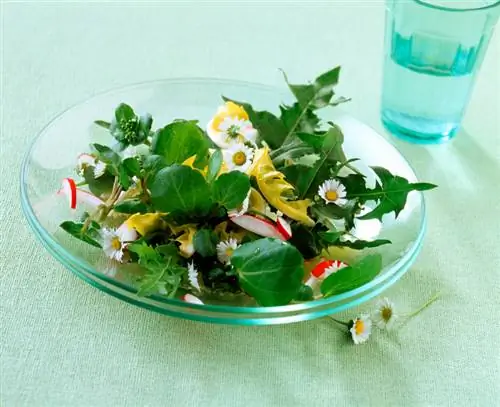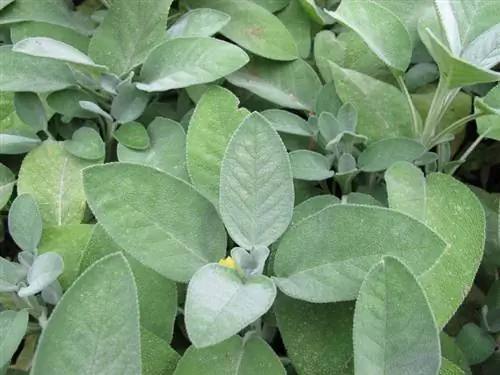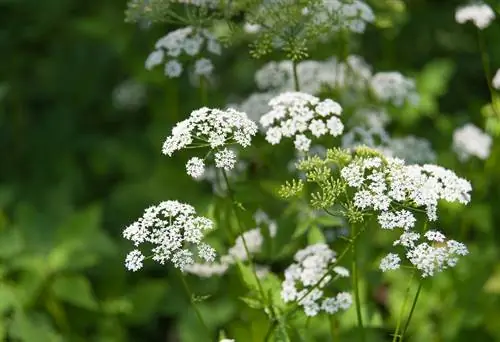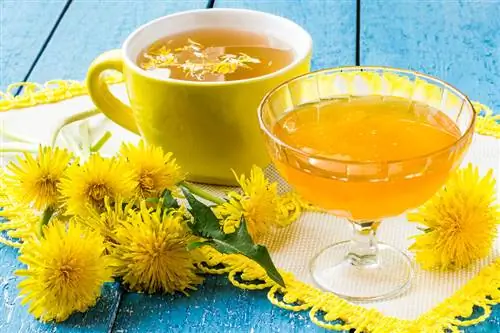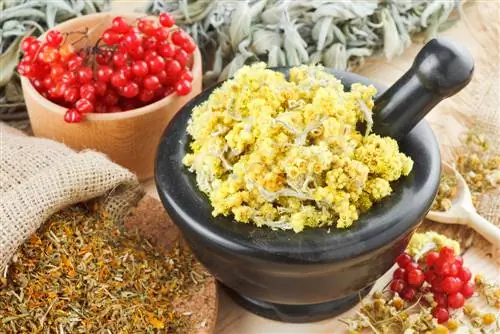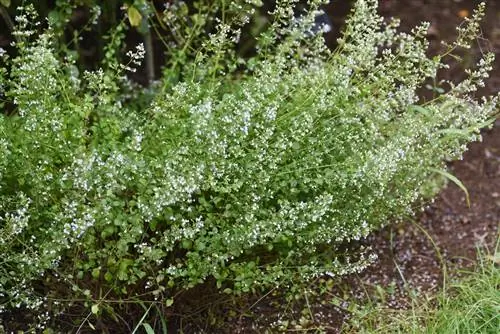- Author admin leonars@hobbygardeners.com.
- Public 2023-12-16 16:46.
- Last modified 2025-06-01 06:02.
For most people who pass by it, it is simply a weed. Even children can identify it with its buttery yellow flowers and striking leaves. But behind the unspectacular facade there is a great medicinal plant!
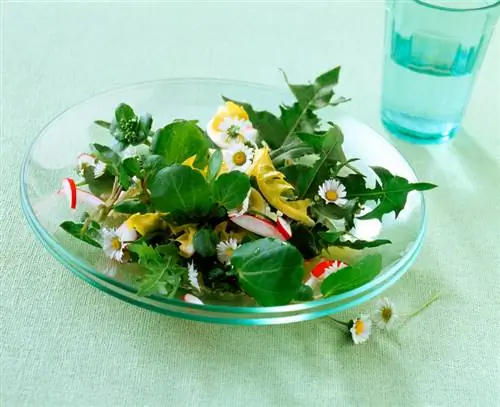
Why is dandelion valuable as a medicinal herb?
Dandelion is a valuable medicinal herb that is easy to recognize and offers numerous he alth benefits. The flavonoids, triterpenes, phytosterols and bitter substances contained have a blood-purifying, bile-stimulating, digestive, appetite-stimulating, antispasmodic, anti-inflammatory, diuretic and metabolism-stimulating effect.
Valuable wild herb that is easy to recognize and edible
There are numerous medicinal herbs. But the dandelion is particularly valuable because it grows almost everywhere in this country, is easy to recognize and even tastes good if you know how to prepare it.
How dandelions work
Flavonoids, triterpenes, phytosterols and bitter substances in dandelions are primarily responsible for the positive effect on he alth. These substances have the following effect:
- blood purifying
- bile juice stimulating
- digestive
- appetizing
- antispasmodic
- anti-inflammatory
- draining
- metabolism stimulating
Against numerous complaints - as tea, tincture or pure
What ailments does dandelion help with? Its range of applications is broad. He is not poisonous. It is primarily known as a medicinal plant for digestive problems and liver problems. Its bitter substances in particular have a soothing effect.
To benefit from dandelions, you can use them as tea, for example. This tastes pleasantly bitter and spicy. You can also make a tincture from the leaves of the plant. The flowers and roots are also usable, although less medicinal.
Collect the flowers in early summer and the roots in early fall! All parts of the plant can also be eaten plain. Dandelion also helps with the following complaints:
- Water accumulation
- Pimple
- Flatulence
- Kidney stones
- Rheumatism
He alth that tastes good
You can make a delicious wild herb salad with the leaves and flowers of dandelions. The flowers are also suitable for jelly, syrup and jam. They are also not to be despised as edible decorations. The roots, dried and ground into powder, were previously used as a coffee substitute.
Tip
The harvest time is crucial if you are looking for the highest active ingredient content. The leaves are most effective before flowering and the roots when the plant has withdrawn above ground.

